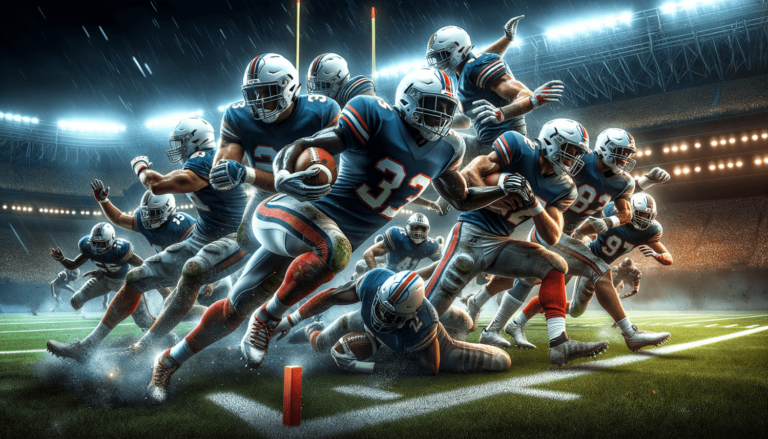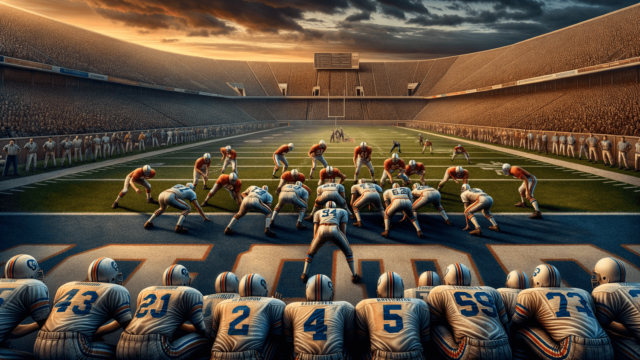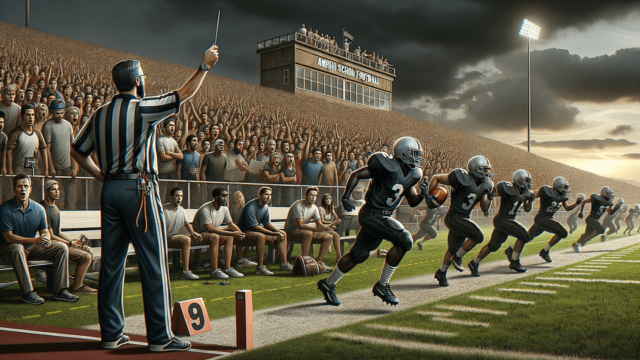
DNP in football stands for “Did Not Play”. It refers to a player not participating in a particular game due to factors such as injury, suspension, or coaching decisions. The DNP designation is often used in game summaries and statistics to indicate a player’s non-involvement in that specific match.
Understanding DNP in Football
DNP, or “Did Not Play”, is a term used in the football world to indicate a player’s non-involvement in a specific game. Various reasons can lead to a player not playing, such as injuries, suspensions, or coaching decisions. This blog post delves into the implications of the DNP designation and its impact on football players, teams, and fans.
Key Reasons Behind DNP Status
Players might have a DNP status for different reasons. Here are some of the most common ones:
- Injuries: Health issues or physical injuries can prevent a player from participating in a match. Teams are cautious and prioritize their players’ well-being to avoid long-term consequences.
- Suspensions: Players can be temporarily suspended from playing due to disciplinary actions, such as accumulating too many red or yellow cards, misconduct, or violating league or team rules.
- Coaching Decisions: Sometimes, the coach may decide to rest a player, alter the team’s tactics, or provide an opportunity for a substitute to play. These strategic choices might result in a player getting the DNP status for a game.
DNP’s Impact on Football Statistics
The DNP status affects individual and team records and statistics. A player with a DNP designation will not have any stats recorded for that specific game, impacting their season averages and overall performance evaluation. Coaches and team managers often analyze these statistics to make decisions about line-ups, contracts, and player development.
DNP and Sports Betting
For sports bettors and fantasy football enthusiasts, the DNP status plays a crucial role in making informed decisions. It’s essential to stay up-to-date with players’ health, suspension status, and potential coaching changes to make accurate predictions and build competitive fantasy football rosters.
DNP and Roster Management
It is a critical responsibility for football team coaches and managers to ensure an optimal performance of their squad. Roster management is a crucial aspect of that, as it involves analyzing the available players’ performance, strengths, and weaknesses. The DNP status plays an essential part in this analysis, helping coaches make data-driven decisions about line-ups and potential squad improvements.
Fans’ Reaction to DNP Status
Football fans often express their opinions about their team’s performance and player selections. When a fan-favorite player is designated with DNP for a game, it does not go unnoticed. Fans might express disappointment, support or even challenge coaching decisions on social media and sports forums. In some cases, the absence of a key player can also affect the team’s morale and public sentiments.
Communicating DNP Decisions
To keep fans and other stakeholders informed, teams need to communicate DNP decisions effectively. Football clubs usually provide updates through official websites, press releases, and social media. Additionally, football leagues may have specific rules and protocols for clubs to follow when announcing player status changes or suspensions. These channels ensure that all parties receive accurate and timely information about a player’s availability for a match.
Managing DNP Players
Players who are sidelined with a DNP status still require attention from the coaching and support staff. Injury recovery, fitness maintenance, and mental support are essential to ensure a smooth return to the field once the player is cleared to play. A well-structured plan considering the player’s health, form, and personal circumstances can result in a more manageable experience for the DNP-designated player.
FAQs on DNP in Football
The following section addresses commonly asked questions regarding the DNP status in football, providing further insights and clarification to help readers better understand the topic.
How is DNP different from being a substitute?
A substitute is a player who is on the bench and available to replace another player during a match. In contrast, a player with DNP status is not part of the line-up and does not participate in the game due to reasons such as injuries, suspensions, or coaching decisions.
Can a player’s DNP status change just before a game?
Yes, a player’s DNP status can change before a game. Fitness tests, last-minute injuries, and coaching decisions might lead to unexpected changes in a player’s availability. It is crucial for fans, sports bettors, and fantasy football enthusiasts to stay updated on the latest news and announcements from teams and leagues.
Do teams need to provide a reason for a player’s DNP status?
While there is no strict requirement for teams to disclose the reason behind a player’s DNP status, it is generally considered good practice to do so through official channels, such as club websites, press releases, and social media updates. Transparency helps keep fans and stakeholders informed and can boost confidence in a team’s management decisions.
How does a player’s DNP status affect their salary and contract?
A player’s DNP status typically does not impact their salary or contract, as these agreements are made independently of their game participation. However, consistent DNP designations due to poor performance or disciplinary issues may influence future contract negotiations or result in a player being released or transferred.
What is the best way to stay updated on a player’s DNP status?
Several sources can help you stay updated on a player’s DNP status: official team websites, social media accounts, league updates, fantasy football platforms, and reliable sports news outlets. Regularly checking these sources will allow you to stay informed about players’ availability and potential changes to their status.
Featured Posts
- No pillar pages found.





